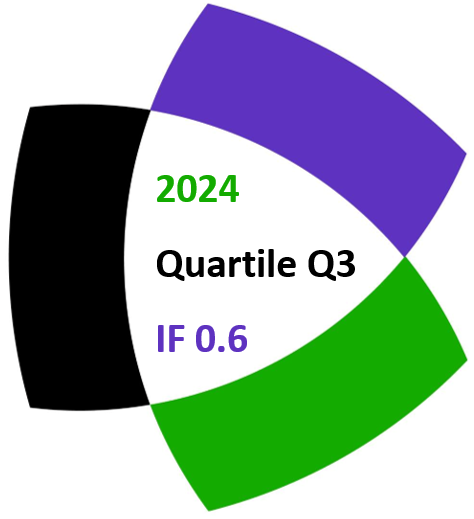Peter J. Shiue, Shen C. Huang and Eric Jameson
Notes on Number Theory and Discrete Mathematics
Print ISSN 1310–5132, Online ISSN 2367–8275
Volume 26, 2020, Number 4, Pages 113–121
DOI: 10.7546/nntdm.2020.26.4.113-121
Full paper (PDF, 156 Kb)
Details
Authors and affiliations
Peter J. Shiue ![]()
Department of Mathematical Sciences, University of Nevada, Las Vegas,
Las Vegas, NV 89154-4020, USA
Shen C. Huang ![]()
Department of Mathematical Sciences, University of Nevada, Las Vegas,
Las Vegas, NV 89154-4020, USA
Eric Jameson ![]()
Department of Mathematical Sciences, University of Nevada, Las Vegas,
Las Vegas, NV 89154-4020, USA
Abstract
This paper is concerned with sums of powers of arithmetic progressions of the form ![]() , where
, where ![]() ,
, ![]() is a non-negative integer, and
is a non-negative integer, and ![]() and
and ![]() are complex numbers with
are complex numbers with ![]() . This paper gives an elementary proof to a theorem presented by Laissaoui and Rahmani [9] as well as an algorithm based on their formula. Additionally, this paper presents a simplification to Laissaoui and Rahmani’s formula that is better suited to computation, and a second algorithm based on this simplification. Both formulas use Stirling numbers of the second kind, which are the number of ways to partition
. This paper gives an elementary proof to a theorem presented by Laissaoui and Rahmani [9] as well as an algorithm based on their formula. Additionally, this paper presents a simplification to Laissaoui and Rahmani’s formula that is better suited to computation, and a second algorithm based on this simplification. Both formulas use Stirling numbers of the second kind, which are the number of ways to partition ![]() labelled objects into
labelled objects into ![]() nonempty unlabelled subsets [4]. An analysis of both algorithms is presented to show the theoretical time complexities. Finally, this paper conducts experiments with varying values of
nonempty unlabelled subsets [4]. An analysis of both algorithms is presented to show the theoretical time complexities. Finally, this paper conducts experiments with varying values of ![]() . The experimental results show the proposed algorithm remains around 10% faster as
. The experimental results show the proposed algorithm remains around 10% faster as ![]() increases.
increases.
Keywords
- Analysis of algorithms
- Arithmetic progressions
- Dynamic programming
- Stirling number of the second kind
2010 Mathematics Subject Classification
- 05A10
- 11B25
- 11B65
- 11B73
- 68N15
- 68Q25
References
- Aigner, M. (2010). Discrete Mathematics. American Mathematical Society.
- Bein, W. (2013). Advanced techniques for dynamic programming. In: Pardalos, P., M., Du, D.-Z., & Graham, R. L. (Editors), Handbook of Combinatorial Optimization, Chapter 2, Springer, pp. 41–92.
- Bounebirat, F., Laissaoui, D., & Rahmani, M. (2018). Several explicit formulae of sums and hyper-sums of powers of integers. Online Journal of Analytic Combinatorics, 13.
- Charalambides, C. A. (2002). Enumerative Combinatorics. Chapman & Hall / CRC Press, pp. 278–279.
- Chen, W. Y. C., Fu, A. M., & Zhang, I. F. (2009). Faulhaber’s theorem on power sums. Discrete Mathematics, 309 (10), 2974–2981.
- Howard, F.T. (1996). Sums of powers of integers via generating functions. Fibonacci Quarterly, 34 (3), 244–256.
- Hsu, L. C., & Shiue, P. J.-S. (1999). On certain summation problems and generalizations of Eulerian polynomials and numbers. Discrete Mathematics, 204 (1-3), 237–247.
- Knuth, D. E. (1993). Johann Faulhaber and sums of powers. Mathematics of Computation, 61 (203), 277–294.
- Laissaoui, D., & Rahmani, R. (2017). An explicit formula for sums of powers of integers in terms of Stirling numbers. Journal of Integer Sequences, 20 (4), Aricle 17.4.8.
- Pita-Ruiz, C. (2018). On a generalization of Eulerian numbers. Notes on Number Theory and Discrete Mathematics, 24 (1), 16–42.
- Vassilev, P., & Vassilev-Missana, M. (2005). On the sum of equal powers of the first n terms of an arbitrary arithmetic progression. I. Notes on Number Theory and Discrete Mathematics, 11 (3), 15–21.
Related papers
- Vassilev, P., and Vassilev-Missana, M. (2005). On the sum of equal powers of the first n terms of an arbitrary arithmetic progression. I. Notes on Number Theory and Discrete Mathematics, 11(3), 15-21.
- Vassilev, P., and Vassilev-Missana, M. (2005). On the sum of equal powers of the first n terms of an arbitrary arithmetic progression. II. Notes on Number Theory and Discrete Mathematics, 11(4), 25-28.
- Pita-Ruiz, C. (2018). On a generalization of Eulerian numbers. Notes on Number Theory and Discrete Mathematics, 24 (1), 16–42.
- Shiue, P. J., Huang, S. C., & Reyes, J. E. (2021). Algorithms for computing sums of powers of arithmetic progressions by using Eulerian numbers. Notes on Number Theory and Discrete Mathematics, 27(4), 140-148.
- Shiue, P. J.-S., Shannon, A. G., Huang, S. C., Schwob, M. R., & Venkat, R. (2024). Algorithms for representing positive odd integers as the sum of arithmetic progressions. Notes on Number Theory and Discrete Mathematics, 30(4), 665-680.
Cite this paper
Shiue, P. J., Huang, S. C., & Jameson, E. (2020). On algorithms for computing the sums of powers of arithmetic progressions. Notes on Number Theory and Discrete Mathematics, 26 (4), 113-121, DOI: 10.7546/nntdm.2020.26.4.113-121.


